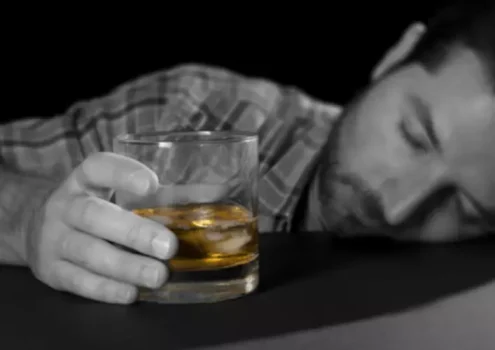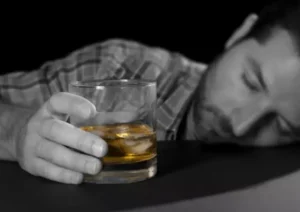
Find out what role aging plays and when to consult a health care provider. Although bruises are usually harmless, they can sometimes indicate a medical condition that requires treatment. Another indication of possible leukemia is lots of bruises with no indication as to a cause. Bruises that take longer than usual to disappear are another concern. However, it may appear alongside fatigue, appetite loss, abdominal pain, and nausea. A person with kidney disease may also bruise easily due to a loss of skin elasticity.

drinking alcohol after removal of the spleen
Symptoms include burning pain in the body, hyperalgesia (increased sensitivity to pain), and allodynia (a condition in which normal stimulus, like a soft touch, produces pain). Let’s say you not only neglected to drink water throughout the night, but you also spent a few hours hugging the toilet. You’ve also, in all likelihood, spent hours racking your brain, trying to figure out how the hell you managed to end up in such a state. ” you might’ve wondered, or, “Did those six tequila shots somehow cause permanent damage to my muscles? Consuming alcohol on an empty stomach is said to have negative consequences such as increased bruise risk and other side effects. It may induce quicker absorption into the circulation, resulting in higher alcohol levels in the body.

Medication
We may prioritize our health and well-being by being careful of our alcohol use and avoiding binge drinking. If you want to stop pain in muscles after drinking alcohol, the only guaranteed way to prevent soreness is to drink in moderation, or to stop drinking altogether. Having a drink or two isn’t likely to cause hangover body aches, whereas regular binge drinking increases your chances of soreness after drinking. Since heavy alcohol consumption can impair your coordination, it increases your risk of injuries from falling. If your body feels bruised after drinking, it might be that you bumped into something or fell and got injured while under the influence. Often, bruising after drinking is a result of falling or bumping into something.
This Is Why You Tend To Wake Up With Bruises After A Night Of Drinking
Since nutritional deficiencies are partly to blame for alcoholic neuropathy. To combat these deficiencies, supplementation with vitamin B12, folate, vitamin E, and thiamine may be recommended. Consuming enough water is one efficient way to promote optimal alcoholism hydration.


If your bruise doesn’t improve within two weeks, or if you start to notice frequent, unexplained bruises—whether you’re drunk or sober—call your doctor. waking up with bruises on legs after drinking And when the blood vessels underneath your skin break, it causes blood to leak out. Patrick McCamley (Clinical Therapist) is a Cincinnati native who has worked in substance use disorder/co-occurring mental health disorder treatment since 2019.

The most common scenario at diagnosis is an enlarged lymph node(s) and nothing else. Scientists don’t know the reason for alcohol-related pain in Hodgkin disease, but one theory is blood vessel dilation. About half of people with lymphoma will have enlarged lymph nodes.
What Is Alcoholic Neuropathy?
Restrict your alcohol consumption to one or two drinks each day for the sake of your health. It is a good idea to restrict your alcohol use to live and maintain a healthy lifestyle. Consuming alcohol in moderation is the key to preventing bruises after drinking and having detrimental effects on your health. Alcohol drinking can raise the likelihood of bruising and other harmful skin consequences.
- For example, they may get a black-and-blue after gently knocking their leg against a desk.
- It’s important to understand the consequences of binge drinking, which include an increased chance of alcohol bruising on arms and legs and other major and minor health issues.
- If you’re aware that drinking is causing health problems, such as liver issues and bruising from alcohol, but you’re unable to stop drinking on your own, it’s time to seek treatment.
- Thrombocytopenia is a condition that involves low blood platelet counts.
- Finally, a person with an alcohol use disorder will likely give up other activities, because their focus is on drinking.
But women are more likely to see a doctor because it causes very heavy periods. For example, you can protect against leg bruising by wearing shinguards when playing soccer or wrapping table legs in protecting padding. They may also recommend blood tests, such as a complete blood count (CBC) and a coagulation factor test, which check to see if there’s an issue with your ability to form blood clots. Sepsis is more common in infants and people with weakened immune systems. It happens when the body over responds to infection and releases a lot of inflammatory chemicals into the blood.
Top 9 Causes of Unexplained Bruising
This damage causes the blood vessels to leak blood, leading to discoloration of the skin. People with this condition have joints that move far beyond the typical range of motion and stretchy skin. The skin is also thin, fragile, and easily damaged, and bruising is common. Hemophilia A is a genetic condition that affects the blood’s ability to clot.
- To combat these deficiencies, supplementation with vitamin B12, folate, vitamin E, and thiamine may be recommended.
- While there’s no evidence of a specific genetic component that drives random bruising, studies have shown that people who bruise easily often have close family members who do as well.
- Alcoholic neuropathy is caused by nutritional deficiency, as well as toxins that build up in the body.
- Treatment includes eating a more varied diet and taking vitamin supplements.
- Without treatment, these may increase, join together, and form larger bruises.
- The combination of these physiologic effects of alcohol can cause several of the symptoms of a hangover.
- Medications such as anticoagulants, nonsteroidal anti-inflammatory drugs (NSAIDs), and corticosteroids reduce the blood’s ability to clot.
If you’re experiencing these side effects from drinking, you might be wondering if there are remedies that can help your muscles to feel better. Unfortunately, most of the research shows that alcohol hangover remedies aren’t really effective. After all, heavy alcohol consumption increases the risk of serious injuries from falls, burns, and motor vehicle crashes. Bernard-Soulier syndrome is a rare, inherited blood clotting disorder. People with this condition may bruise easily, bleeding from small blood vessels under the skin.